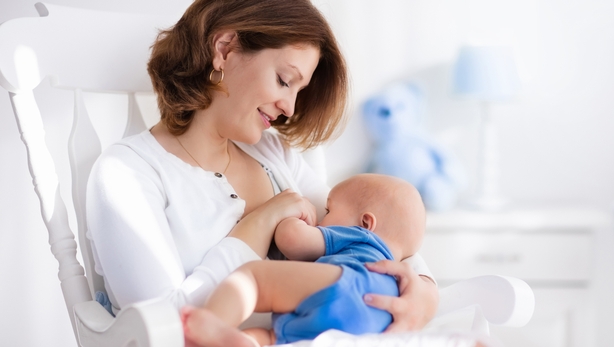For many mothers, breastfeeding their baby is a high priority, as it's proven to have many benefits for both mother and child. With this in mind, it's no wonder that many of those who can breastfeed plan to do it for as long as they can.
However, it's not always that easy as any new mum will tell you.
A survey by social parenting community BabyDoc Club shows that many mothers who try breastfeeding stop earlier than they planned due to certain difficulties – not least the pandemic.

They found that while 48% of pregnant mums want to breastfeed until the weaning stage at around 5-8 months, pre-COVID only 15% of mums made it that far, with most finishing much earlier.
It's not all bad, though: incredibly, there are signs that the lockdown period may have given some mothers more time to devote to breastfeeding, as 26% of mums who gave birth during COVID have now hit the 5-8 month breastfeeding milestone.
BabyDoc Club surveyed 801 pregnant mums and mums of babies under two years of age within their social community about how they've gotten on with breastfeeding and the challenges they encounter.
The World Health Organisation recommends babies are breastfed exclusively for the first six months of life and that their diet is supplemented with breast milk until they hit two years of age.
Breastfeeding is clearly the plan for many new mothers. In the survey, three-quarters (73%) of pregnant mums said they'd intend to breastfeed their baby, while 61% of women with babies under two years of age did breastfeed. Two-thirds of these mums were still breastfeeding at the time of the survey.
While breastfeeding does not suit many women, for many reasons, those who can say they want to breastfeed to give their baby a great start in life and to bond with them.

Of the currently pregnant and breastfeeding mums, 86% said that they did so because of the benefits of breastmilk, with 12% of mums said bonding and the benefits to their own maternal health were their main reason.
However, only 2% said convenience was the main reason for breastfeeding.
Breastfeeding is an often difficult thing to master, with a lot of support needed to help some women make the most of it. In the survey, 77% of breastfeeding mums felt that they got the support they needed in hospital to help breastfeed their baby, but once they got home, 55% of these mums struggled.
When it came to getting help, 59% went to online help videos while 45% used the services of a private lactation consultant.
There are many difficulties that women face when trying to breastfeed, with 41% saying they experienced pain while breastfeeding. Getting the baby to latch properly was a struggle for 39%, while 25% found it hard to breastfeed while recovering from a difficult birth.
Services are key to helping women, as 25% said they found it hard to get a lactation consultant to visit them at home. 15% experienced a delay in their breastmilk coming in and/or poor milk supply, 11% were also dealing with the "baby blues" or postnatal depression and 8% got mastitis while breastfeeding (a painful infection with flu-like symptoms).
You can find a breastfeeding support group through HSE.ie here.

Judgement is a significant factor too, with some mums feeling shamed by others for their choices: 33% of mums who had a baby in the last 12-months and decided not to breastfeed, or had to stop within the first two weeks of feeding, felt judged by others for doing so.
And the lasting implications of this struggle can be serious, and make an already challenging situation much worse. In the survey, 53% of breastfeeding mums said that they wished they had been more prepared as to what to expect before giving birth to their baby.
More than half (57%) of breastfeeding mums felt like a failure at least once on their breastfeeding journey, and 30% of these mums said it as a key reason they developed postnatal depression.
So if there's one silver lining to the pandemic, it has certainly been that new mums can spend more time with their babies getting to grips with the ways they want to parent. According to the survey, 78% said they would have liked to have been able to continue breastfeeding for a longer time.

